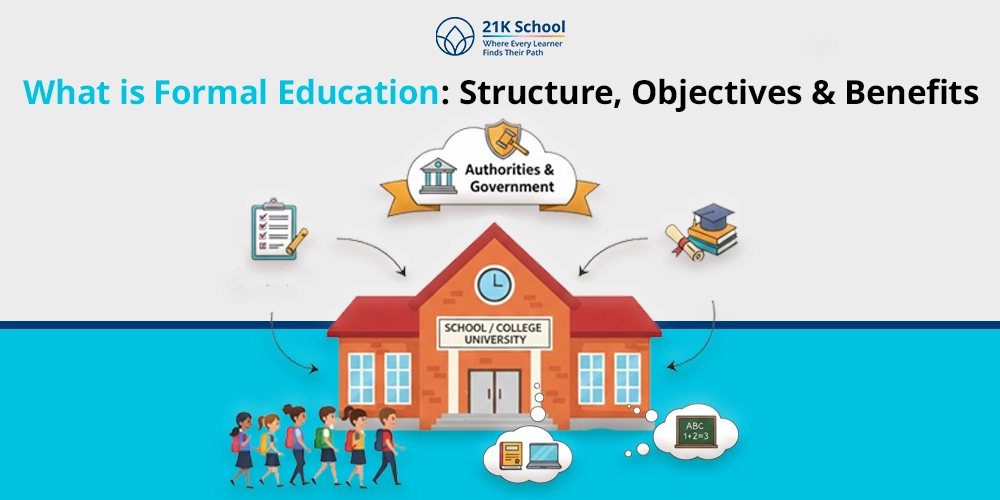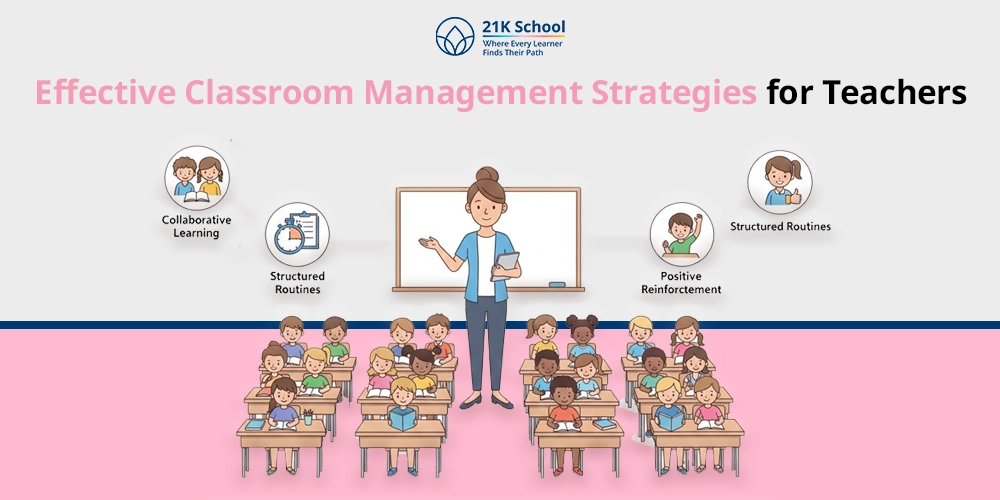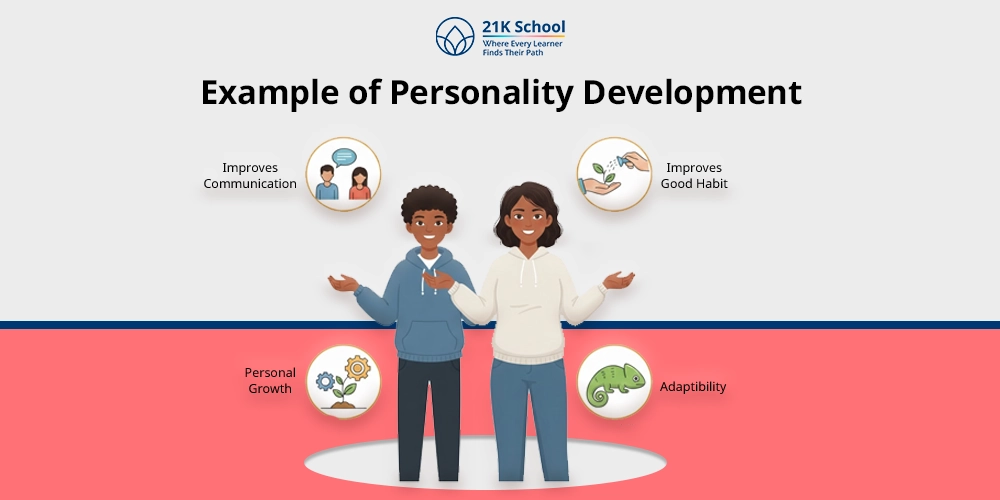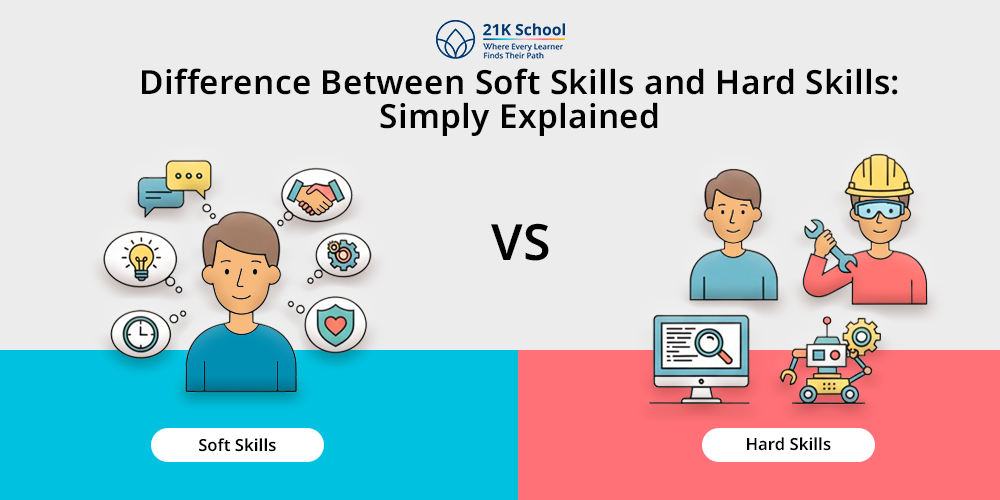
Did you ever consider how hard and soft skills are to be different, and yet not being able to figure out how they differ?
Both hard and soft skills are related to the skills development. Hard Skills are methods of practice that concern the knowledge of the practical side, on the other hand, soft skills are the characteristics of the personality and habits of behaviour.
Hard and soft skills are the main features of the child’s mental development. Hard Skills are simply the basic things that are needed in order to do a certain job or to be involved in some kind of activity.
Soft skills are those skills that are required to work in an official area or at the student level to interact with other people confidently. On the other hand, hard skills and soft skills are not only made for official or professional work but also required to excel in studies.
Contents
What Are Soft skills?
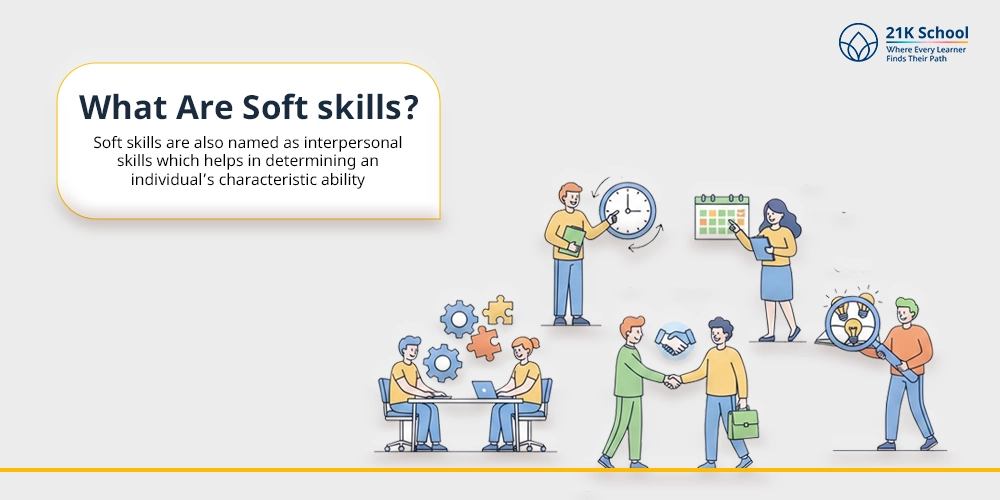
Soft skills are also named as interpersonal skills which helps in determining an individual’s characteristic ability. It cannot be measured, and it is a personal value of an individual. Soft skills are used not to become an only good communicator or a partner.
Soft skills are excellent for having good communication skills , working in a team, managing time , and so on. Soft skills are important in studies as well as at work.
Soft skills are also subjective to learners of STEM education, which helps them to learn all the subjects over a particular context.
What Are Hard skills?
Hard skills are also called technical skills. It helps an individual to perform any physical work. Hard skills can be taught and learned by doing practical work, training programs, internships or learning through someone experienced.
Hard skills are the skills that can be measured and are essentially needed. Measuring hard skills can be possible by an individual’s ability. For example, if any individual has hard skills, one is a good craft person, and he can do things to prove his/her hard skills.
Hard skills allow students to get practical knowledge , which is not only important to get good scores in studies but also to get a step ahead in their careers.
What is the Difference Between Hard Skills and Soft Skills?
Hard skills deal with practical skills that can be done through physical work. Soft skills are different from hard skills because they deal with people’s viewpoints and interactions. Both skills help us develop our attitude and working capability for the body. Here is the detailed differentiation between hard and soft skills.
| Aspect | Soft Skills | Hard Skills |
| Meaning | Soft skills are behavioural traits that allow students to show empathy, relationships, interaction and so on. | Hard skills are physical skills which allow children to indulge in physical work and practical skills. |
| Application | Soft skills are needed for a variety of tasks and are related to other skills. | Hard skills are applicable to mostly any physical work, such as a job or any other task which requires practical skills. |
| Usage | Soft skills are related to the communication process or building relationships through empathy and interaction. | Hard skills are used in order to achieve an objective by means of physical work or hands-on training. |
| Importance | Soft skills are necessary in order to interact and communicate with others in a positive and more confident manner. | Hard skills are important because they allow students to indulge in physical and practical tasks through practising practical work. |
| Learned Basis | Soft skills can be learned through interacting in communication sessions, interaction and daily group activities. | Hard skills can be learned through internships, on-the-job training, physical work and any type of practical working. |
| Measurement | Soft skills are difficult to measure; however, they can be understood on the basis of children’s ability to interact and communicate. | Hard skills can be easily measured on the basis of students’ hands-on experience and practical knowledge. |
| Examples | Social skills, communication skills, empathy , and intellectual skills | Database management, Adobe software suite, and statistical analysis |
1. Definition
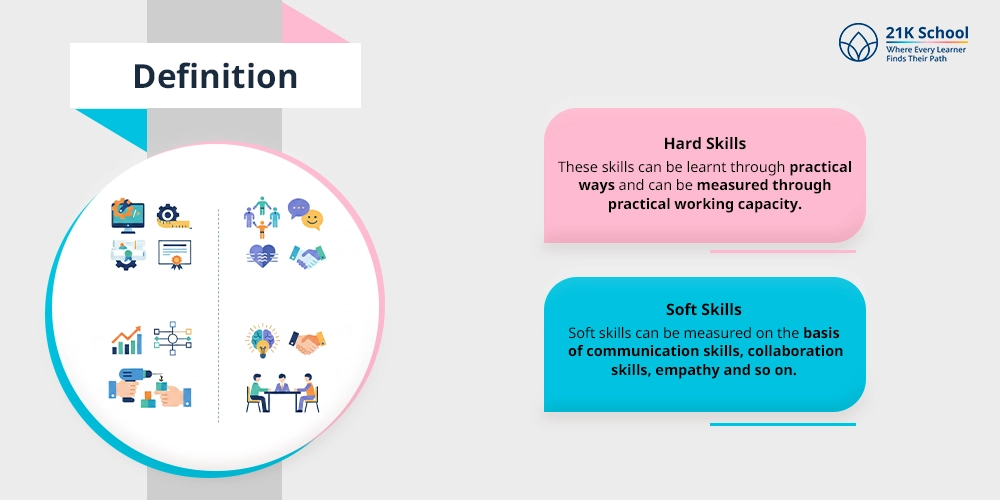
Hard Skills
Hard skills are specific, teachable skills that can be acquired through training programs, jobs and internships. These skills can be learnt through practical ways and can be measured through practical working capacity.
Soft Skills
Soft skills are personality-based skills that represent some one’s behaviour and ability to interact with others in a confident manner. Soft skills can be measured on the basis of communication skills, collaboration skills , empathy and so on.
2. Applicability
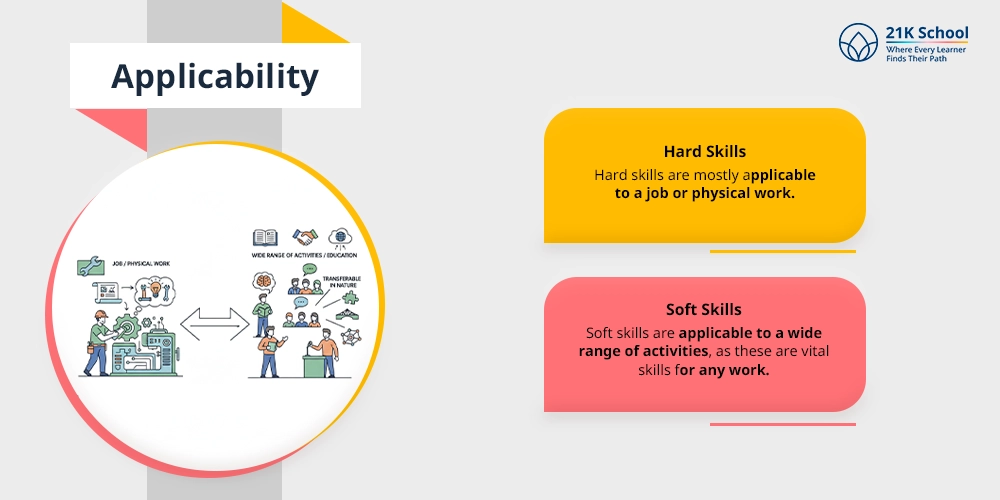
Hard Skills
Hard skills are mostly applicable to a job or physical work which needs practical application to comprehend any tasks.
Soft Skills
Soft skills are applicable to a wide range of activities, as these are vital skills for any work or education and can be transferable in nature.
3. Usage
Hard Skills
Hard skills are used mostly to perform work or to achieve a desired objective by means of implementing learnt knowledge and skills.
Soft Skills
Soft skills are used for the purpose of communicating with others as well as to interact with others as well and building positive relations with others.
4. Importance
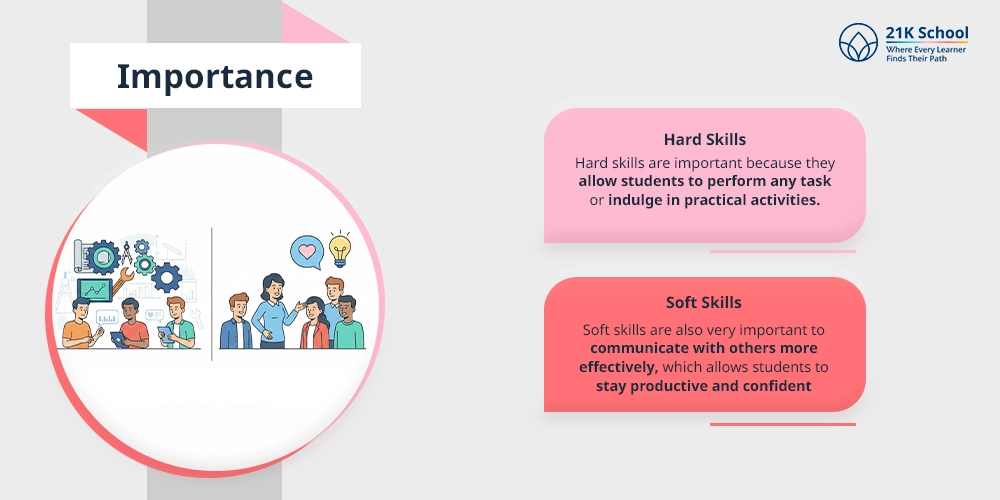
Hard Skills
Hard skills are important because they allow students to perform any task or indulge in practical activities. Hard skills are very important in both the work sectors as well as educational sectors.
Soft Skills
Soft skills are also very important to communicate with others more effectively, which allows students to stay productive and confident, as well as communicate with others in a productive manner.
5. How They are Learned
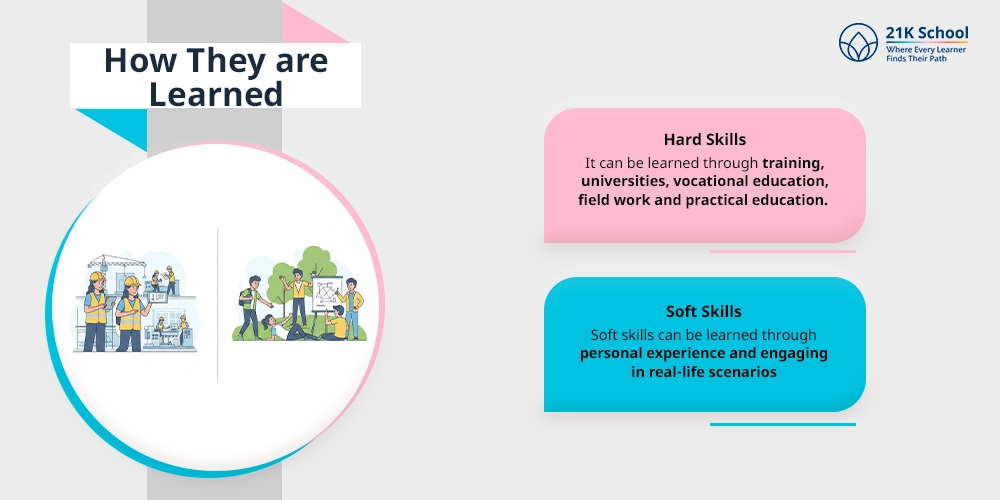
Hard Skills
Hard skills can be learned through training, universities, vocational education , field work and practical education.
Soft Skills
Soft skills can be learned through personal experience and engaging in real-life scenarios such as communication, respecting others, leadership quality, problem-solving techniques and so on.
6. Measurement
Hard Skills
Hard skills are measured on the basis of practical skills and physical activities learned by students through hands-on experience.
Soft Skills
Soft skills are behavioural traits and can be measured on the basis of students’ ability to interact and connect with others in a positive and more flexible approach.
7. Examples
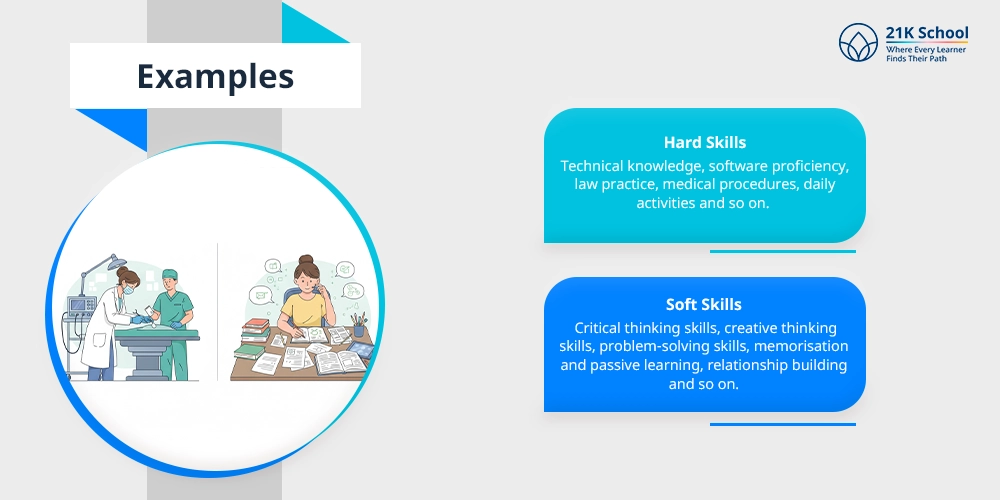
Hard Skills
Examples of hard skills include technical knowledge, software proficiency, law practice, medical procedures, daily activities and so on.
Soft Skills
Examples of soft skills are critical thinking skills , creative thinking skills , problem-solving skills , memorisation and passive learning, relationship building and so on.
Final Thought
Both types of skills, hard and soft skills, are an essential part of the students’ complete growth and development.
There is a remarkable need for students to work on their hard skills for practical tasks, and on the other hand, they also need to work on their soft skills for their emotional intelligence or behavioural aspect. Hard skills are required in academic and career terms.
Students must master both skills at an early stage, as they make all the tasks easy and help in the overall development of the students. Mastery over both skills will help students build confidence and efficiency, will help in having healthy interactions in all aspects.

